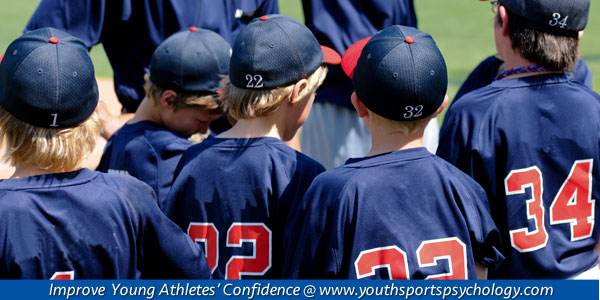
Sports Kids And Comfort Zones
Sports mom Jennifer says her 11-year-old baseball player hates making mistakes, doesn’t want to disappoint people, and likes to stay in his comfort zone.
His coaches have only kind words for the boy and don’t seem to recognize his challenges. Why? Because he’s a classic perfectionist who works hard and listens to his coaches–a trait that coaches really appreciate.
However, sports kids like Jennifer’s struggle with plenty of mental game roadblocks. They often under-perform in games and are very hard on themselves. Like her son, they don’t always seem to be having fun.
With a little mental game coaching, such athletes can experience more enjoyment and reach their full potential in sports.
Here’s how you can help sports kids who are afraid of failing…
Begin by taking a look at your own behavior.
Do you have high expectations for your young athletes?
Just before a game, do you tell them to score five goals, avoid mistakes, or win the game for the team?
If so, think twice next time you’re tempted to express such expectations. Kids will take these expectations on as their own, and they’ll become frustrated if they don’t meet them.
Next, think about how you talk to kids about mistakes. Do you point out mistakes, criticize your kids after they make mistakes, or express disappointment when they goof up?
These are all mental game no-nos for sports parents. Instead, you need to remind them that everyone makes mistakes. You need to tell them that it’s okay to make mistakes.
In fact, you might remind them that they’re more likely to learn and grow if they allow themselves to take risks and goof up.
What’s more, you can help kids replace their own high expectations with process goals. These mini-goals help sports kids focus on the here-and-now, rather than the “win” or “score.”
For example, tennis players might focus on increasing their first-serve percentages. Swimmers might focus on getting a good jump off the blocks.
Young athletes who are afraid of making mistakes also need to change their fear-driven mindsets into success-driven mindsets….
Instead of telling themselves they need to have a perfect game to impress their parents, they should tell themselves, “I know if I work my game plan and focus on one play at a time, I will play well.”
Related Articles on Kids’ Mental Game:
- Helping Young Athletes Kick Perfectionism and Fear of Failure
- How To Help Young Athletes With Fear of Failure
- How Fear Of Failure Hurts Kids’ Confidence
*Subscribe to The Sports Psychology Podcast on iTunes
*Subscribe to The Sports Psychology Podcast on Spotify
The Composed Sports Kid

“The Composed Sports Kid” audio and workbook digital download program for young athletes and their parents or coach helps kids cope with frustration and anger in sports. Help your sports kids learn how to manage expectations and let go of mistakes so they can keep their head in the game.
The Composed Sports Kid system is really two programs in one–one program to train parents and coaches how to help their kids practice composure, and one program that teaches young athletes–ages 6 to 13–how to improve composure, let go of mistakes quickly, have more self-acceptance, and thus enjoy sports more!
